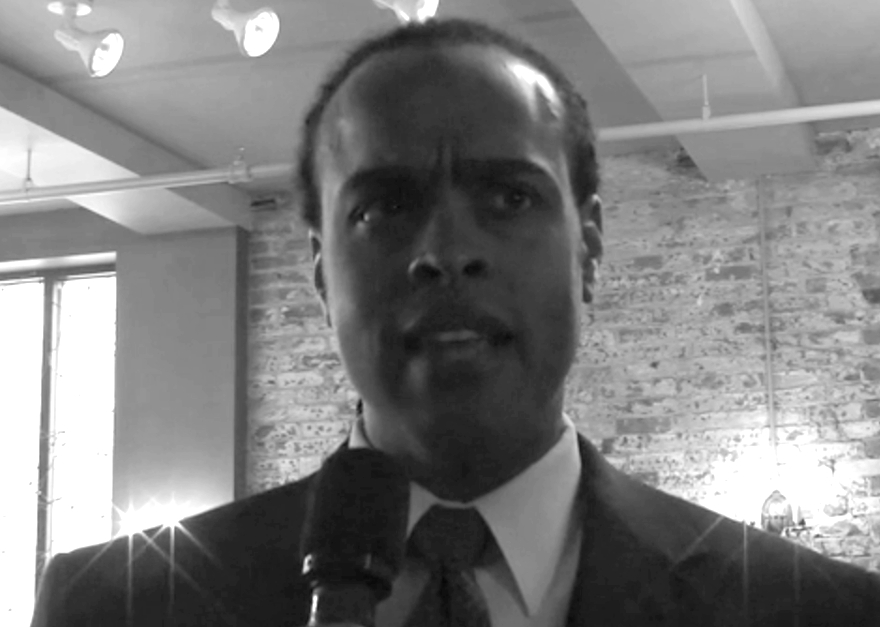Podcast (problem-solvers-ish): Play in new window | Download
Subscribe: RSS
Part 2 of our series, “The Shattered Shield” examines the way institutionalized racism subtly, sometimes subconsciously, guides official action leading to dire consequences.

Today is Sunday, September 11, 2016. I’m your host, Jason Velazquez, and I do thank you for tuning in to Episode 35 of the Top Left Corner.
This installment of the show features a tragic continuation of a conversation that I had with Tracey Benson, who was first a guest on this show in April of 2015 in advance of his MCLA appearance with Veronica Benavides. That public discussion revealed the outcome of their case study, “Letters from Ferguson: A Community’s Response to Race and Racism.”
Benson, the former Pittsfield High School principal Tracey Benson, left the Berkshires to pursue his Ph. D. at the Harvard Graduate School of Education. He is now an Assistant Professor of Educational Leadership at the University of North Carolina-Charlotte.
The video below of a panel discussion of the Askwith Forum at the Harvard Graduate School of Education entitled, “Ferguson and Beyond: Educational Strategies to Address Racism and Social Injustice” is well worth watching.
Our most recent exchange came immediately after the deaths of Alton Brown on July 5th and Philandro Castile on July 6th at the hands of police officers. As the nation reeled from the heartbreaking video footage of these events, we spoke, of course, about the real and terrifying possibility of fatal citizen interactions with police.
Racism, Fear at the heart of many police-involved shootings
Primarily, however, we focused our attention on the root causes of such horrors—systemic racism that begins to damage the lives of people of color at an extremely young age. Growing up in an outrageously segregated city, Benson, was able to inspect racial attitudes from a number of different viewpoints. As an educator, he has been well-positioned to witness the present-day outcomes of official, unofficial, and subconscious policy.
As an African-American adult and father, he has good reason to wonder if he should even hope that confronting prejudice and fear will begin to address a frighteningly escalating national tension. Either society finds a way to slow the death rate of people who die more for what they look like than for what they were doing, or another generation of parents will have little choice but to train their children from a young age how to appear as harmless and subservient possible as they go about innocent activities.
The release of this episode has, truthfully, been on hold for far too long. The reasons for this delay are many and varied—none of them weighty enough, however, to justify keeping this episode from airing another day. To those listeners who have been expecting Part II of this series, “The Shattered Shield,” and especially to Tracey Benson himself, I apologize for the wait.
The release of this episode on September 11 is purely coincidental. The main impetus that drove me to finalize production was actually the nightmarish death of 29-year-old activist Darren Seals, who gained national attention in the weeks and months following the police killing of Michael Brown.
In the early morning hours of Tuesday, September 6, police pulled Seals’ body from a car that had been a blazing inferno just minutes earlier. An autopsy revealed that the cause of death, however, was a gunshot wound to the head, execution-style.
Knowing of the important research performed by Tracey Benson in Ferguson, and knowing that he worked intimately with people in the city, perhaps even Darren Seals, I knew that I had to release this episode before another weekend passed.
And while it is true that the release of this episode today has no direct connection to the anniversary of the 9/11 tragedy, it should be noted that according to the FBIs own estimates, well over 7,000 Americans have been killed by law enforcement officers since 2001. Regardless of how many of those deaths can be justified by the circumstances, that number is still twice that of those who died on 9/11.
Tracey Benson soberly predicted that more people would die as a result of interactions with police in the weeks following our conversation. I wonder if he would have guessed that body count would rise to 175 since we spoke in July, according to the Guardian’s running tally, “The Counted.”
With that, I hope this conversation provides both food for thought and fuel for action. Enjoy.
From Tracey Benson’s Bio at the University of North Carolina
Tracey Benson is an Assistant Professor of Educational Leadership at the University of North Carolina-Charlotte. He received his Ed.D in Education Leadership from the Harvard Graduate School of Education and Masters of School Administration from the University of North Carolina-Chapel Hill. He has served as a principal coach, high school principal, middle school vice-principal, district trainer, proficiency specialist, and elementary school teacher. His research focuses on implementing operational systems of principal growth and development. Benson built a contemporary approach to supporting principal growth and development for pre-service principals as well as sitting school leaders for the Houston Independent School District. He also prepares school leaders to use data as a means of tackling inequities and structural racism in K-12 education. To this end, he has published case studies specifically for the purpose of uncovering vestiges of structural racism in K-12 school systems.
Benson firmly believes that student achievement, teacher efficacy, and school success is contingent upon high quality, equity-focused school and district leaders. He has committed his career to leading for change, courageously addressing entrenched practices that impede lifetime outcomes of students of color, and coaching leaders towards implementing anti-racist policies and curriculum in K – 12 schools.
Area(s) of Interest and Research:
Understanding racialized context in which educators operate and systems alignment and equity in access and outcomes.







